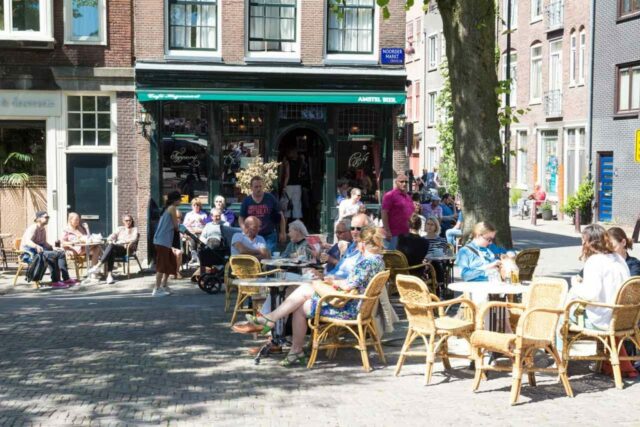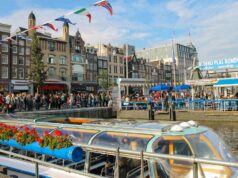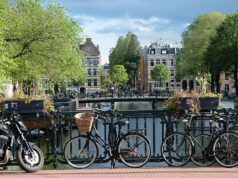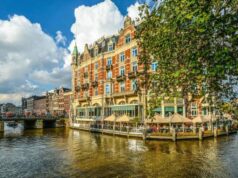Rules of behavior and tips in Restaurants in Amsterdam | The Netherlands is one of Germany’s direct neighbors. It is a relatively small country but very prosperous and often wrongly or underestimated. The people there are very open and hospitable, but that does not mean that tourists can do anything and everything in this country. Dutch people are proud of their country and are value-conscious.
The country is not really that religious, but the church still plays a vital role in parts of the Netherlands. There are many extreme rules here that better be followed so that there are no penalties. Below are some essential tips and practices of conduct for the first trip to Amsterdam so that the vacation will be memorable and stress-free.
Tipping in Amsterdam
To begin with, a critical topic in the Netherlands is tipping. Almost everything in the Netherlands is paid by card. It is essential to make sure that there is a Maestro or V-Pay sign on the card. Even tiny amounts of money are spent by card there. In many bars and restaurants, it is even the case that only card payment is possible, as the waiters are only equipped with a reader.
Tipping in a restaurant is the same as in most European countries. The usual here is 5% to 10% of the invoice amount. If the service staff only has a reader and no wallet, then either an amount can be named that would like to be paid, i.e., invoice amount plus tip, or the restaurant visitor can type the tip into the reader himself. It is important not to enter the total bill amount with the tip, but only the tip.
Tipping is not customary in hotels, but a small thank-you can be given for exceptionally dedicated service. Cab drivers expect up to 10% of the invoice amount. Since there are many dubious cab drivers, especially around Amsterdam, a realistic fixed price should be agreed upon in advance. Cab rides are relatively expensive, so it is sufficient to round up the amount. The tip in public toilets is usually 0.50 €.
Food and drink
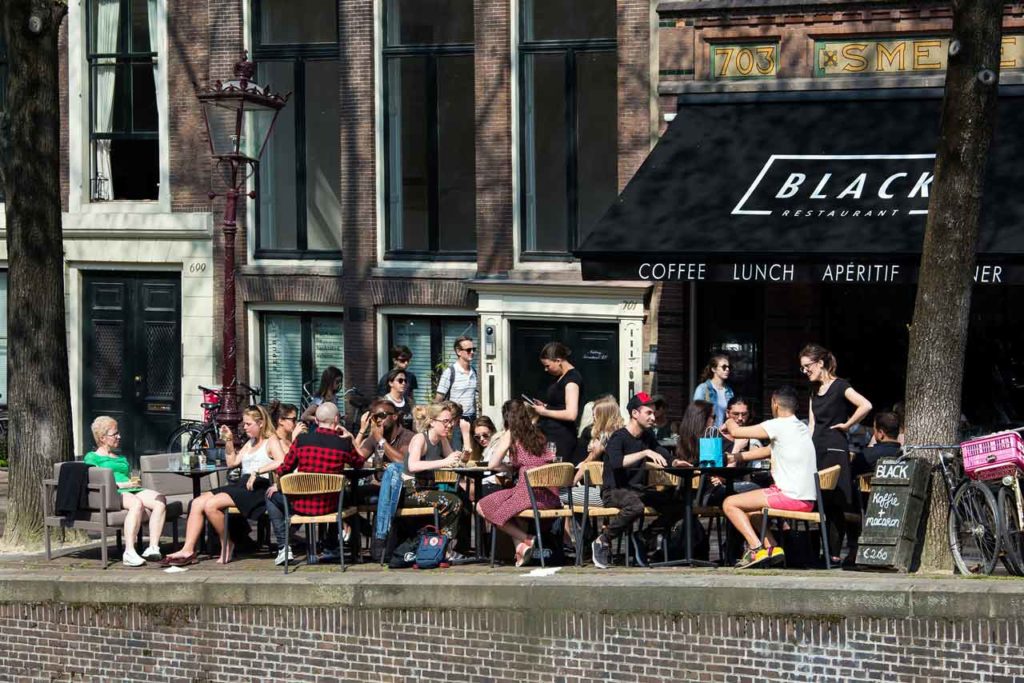
Regarding food, there are relatively few agreements that should be followed. Typically, Dutch people eat the main hot meal in the evening. Therefore, it is possible to get hot food almost everywhere until 10 p.m. In other countries, it is common for a bill to be paid separately.
Invoices in bars or restaurants in the Netherlands are generally issued for the entire table and paid by one person. The amount is only divided among themselves afterward. However, if it is stated in advance that the invoices should be issued separately, then this is also possible in most locations.
In smaller pubs, there is often a kind of self-service. The service staff do not come to the table to take the order. Instead, the guest must place the order himself at the counter. Generally, no tobacco or alcohol is sold to those under 18. Alcohol consumption is also prohibited under the age of 18. Up to 25, identification must generally be shown when purchasing alcohol.
If you travel to Amsterdam, you should try the Dutch cuisine. There are relatively simple but nutritious dishes such as mashed potatoes with cabbage and sausage (Stamppot), pancakes (Pannekoeken), or small pancakes (Poffertjes).
Greetings
As a rule, the greeting in the Netherlands is rather casual. Most people greet each other with “Hoi”, “Morgen” or “Hallo”. The handshake is rarely used, mostly between acquaintances who have not seen each other for a while. Relatively quickly, you are offered the “Du”. It is best to wait and see if the other person will use the familiar form.
But even otherwise, there is nothing wrong with shaking hands with your counterpart at a first meeting and calling him by his first name until he changes to the first name. Friends or good acquaintances you don’t see daily are said goodbye with three air kisses (left, right, left).
Smoking
As early as 1990, smoking was banned in public authorities and public places in the Netherlands. This was followed in 2000 by a ban on smoking in public transport. In 2004, the ban was extended to other public facilities and workplaces. However, everyone is allowed to designate so-called smoking areas as long as non-smokers are protected.
On the other hand, the smoking ban has become more or less established in the catering industry. Usually, smokers go outside the door. Exceptions to this rule exist in coffee shops, particular hotel rooms, or small separate smoking areas in bars and restaurants.
Tabus
- Taboo 1: Use any drugs
There is a big misunderstanding in the Netherlands regarding drug use. It is forbidden to use and carry hard drugs (e.g., cocaine, crystal meth, heroin, or speed). However, there is a kind of toleration policy. In certain places, such as well-known coffee shops, soft drugs can be consumed in Amsterdam. Small amounts of soft drugs can also be carried. Otherwise, carrying and consumption are strictly prohibited.
- Taboo 2: calling all Dutch people Dutch
Not every person speaking Dutch is also Dutch. Holland is only the name for the provinces Zuid-Holland and Noord-Holland. So, to call every Dutchman a Dutchman would be just like calling all Germans Bavarians. People living in the north of Belgium who speak Dutch are called Flemings.
- Taboo 3: assume that everyone speaks German
Most Germans assume that all Dutch people speak German. This may be true for the majority, but it is very impolite to talk to locals in German. It is better to ask in advance whether the other person also speaks German or English.
- Taboo 4: say something negative about the Dutch royal family
Dutch people are mostly positive about the Dutch royal family. Even if this is not the case, it is not for a tourist to say anything wrong about his country or the royal family.
Conversation
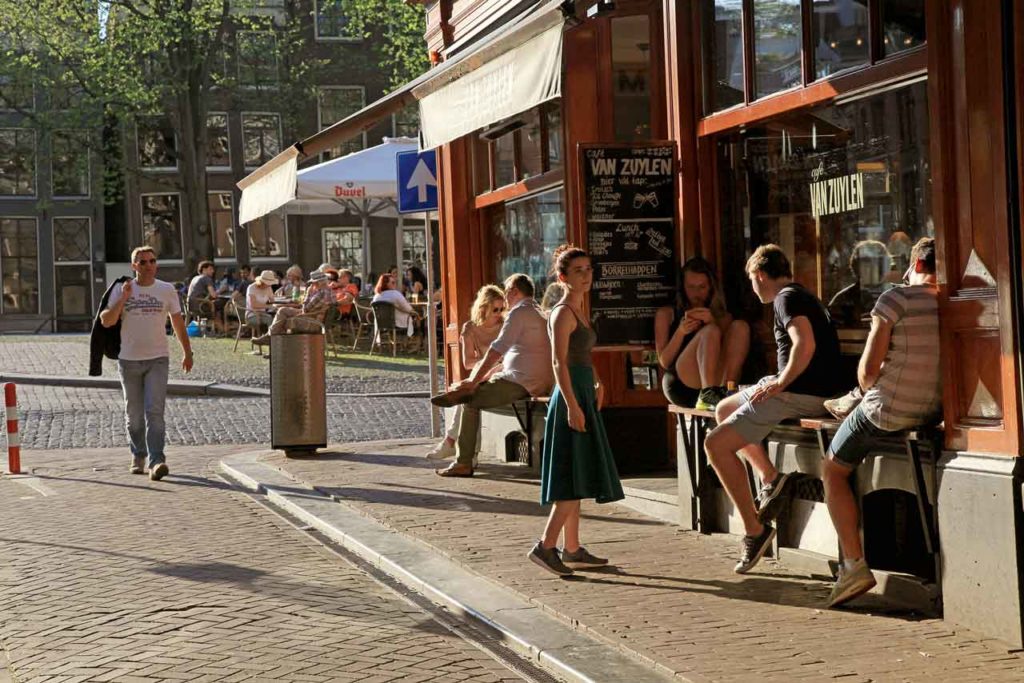
It’s not difficult to strike up a conversation with Dutch people. The only thing to watch out for is the choice of topics. Soccer is one of the more complex topics, as is a conversation about the Second World War. Likewise, never say anything negative about the country or the kingdom.
Otherwise, common courtesies should be observed. Regarding a private invitation, taking a small gift, such as wine or flowers, is never wrong. Otherwise, it is advisable to be calm and polite.
There are other things that you should also know!
✓ Clothing: In general, it is the same as in Germany. On official occasions, it is essential to wear impeccable clothing. In the spare time, it is also no problem to dress casually. Generally, however, the locals do not define themselves by their clothing.
✓ Cycling: Amsterdam is one of the world’s bicycle capitals. You can ride a bike almost everywhere. Since many Dutch people travel by this means of transport, depending on the far right is better because other cyclists often overtake you. If you surpass yourself, you can announce the overtaking beforehand with the bell.
✓ Private invitations: In principle, never visit someone without an appointment. Always wait for an invitation and then preferably bring a small gift. As is also customary in Germany, punctuality should be observed.
✓ Emergencies: Whether the fire department, the police, or an emergency doctor is needed, the telephone number 112 must be called in the Netherlands. If only the police are needed, or it is not an emergency, the number 0900-8844 must be dialed.
✓ Disease: The best thing to do here is to look for a family doctor. The hospital’s emergency service can be visited anytime for severe or acute illnesses.
✓ Shopping: It is better to do all the shopping in the morning because the streets are crowded in the afternoon and evening. Then it is difficult to stay relaxed and look at shop windows.
How to make the Amsterdam trip a success
Common courtesies should always be observed to make the trip to Amsterdam unforgettable. In this context, the tip is essential. As in Germany, 5 to 10% of the invoice amount should always be given. Cash is uncommon in the Netherlands; most places and markets now almost only allow card payments.
The ban on smoking in public places and restaurants should be strictly observed. As the locals do, it is best to have a warm meal in the evening. This is possible almost everywhere until 10 p.m. If you follow these tips, nothing stands in the way of a visit to Amsterdam.

